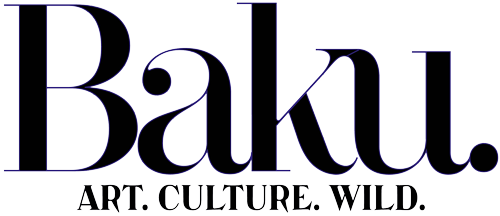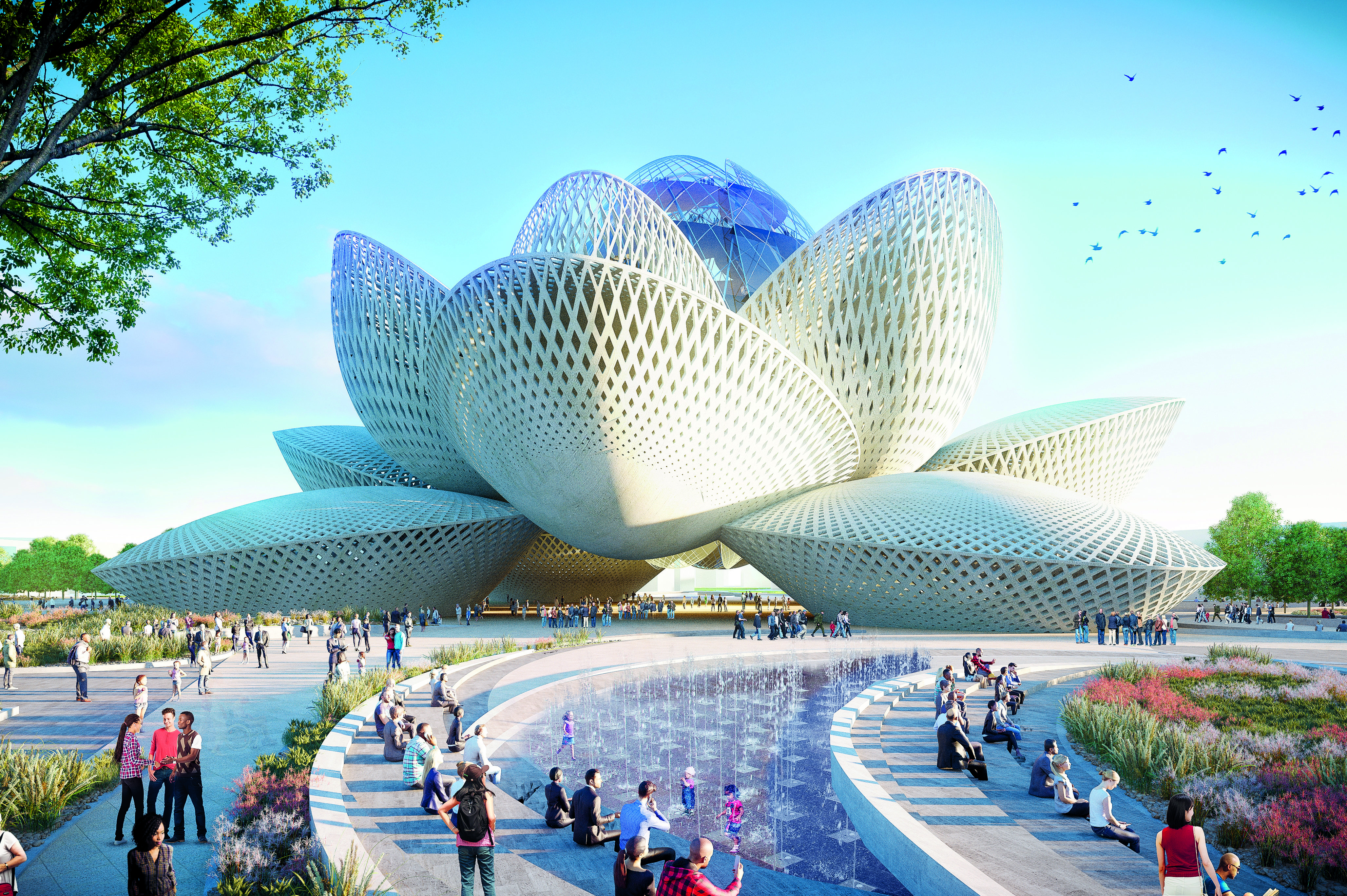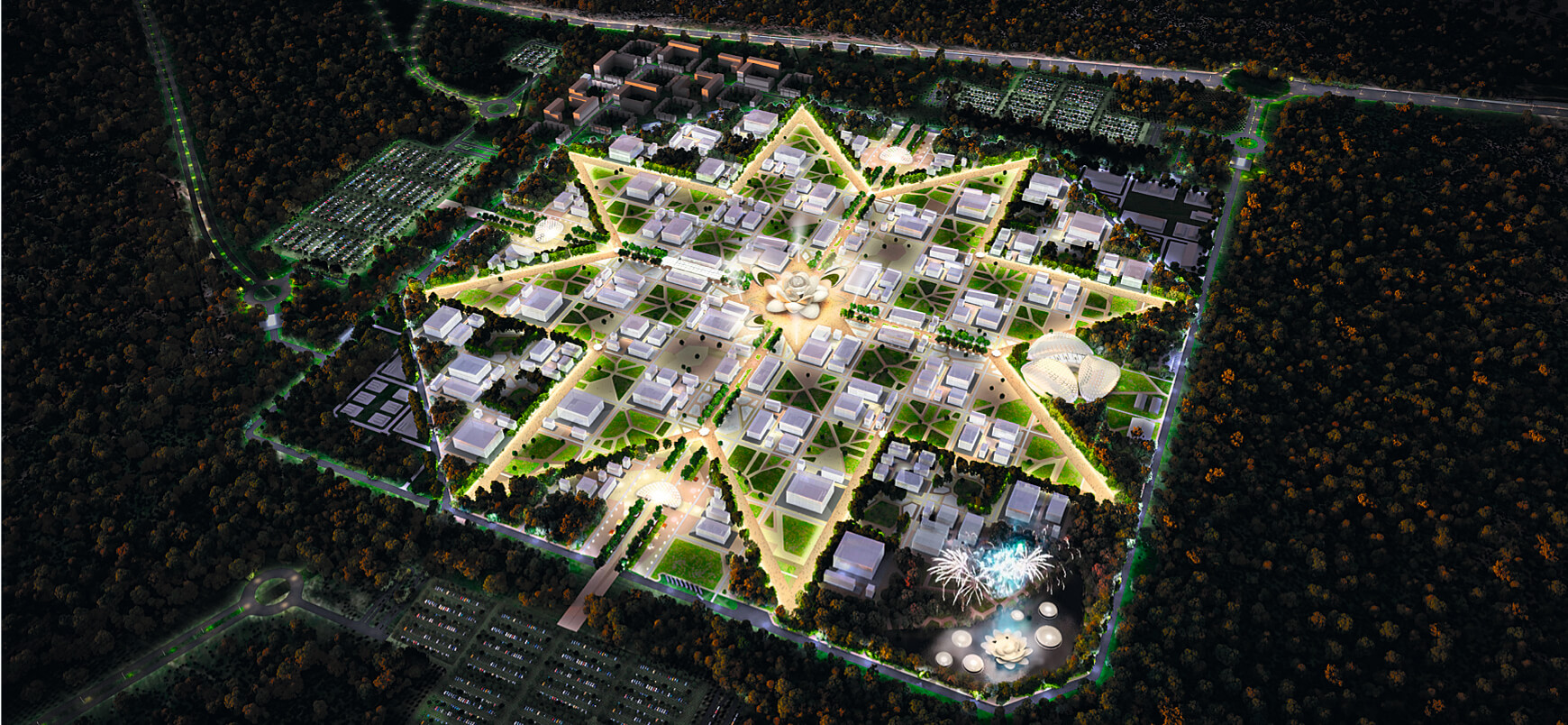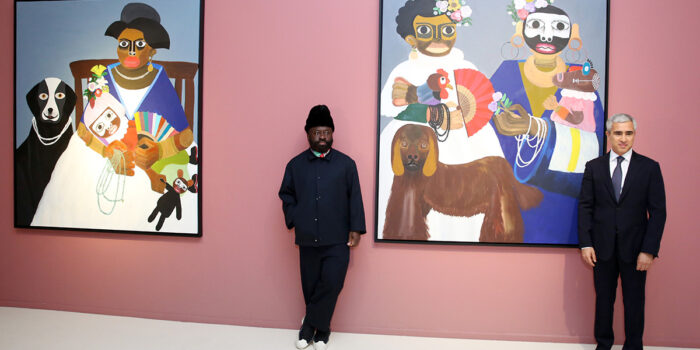From the F1 to the European Games, Baku has become a hotspot for major international events. Now, with a focus on youth and legacy, as well as an architectural vision in the shape of an eight-pointed star, Baku is seeking to join the family of World Expo hosts, says Andrew Saunders
Why is Baku, the capital of an oil-rich but still developing state on the shores of the Caspian Sea, and part of the former Soviet Union until 1991, bidding to host the World Expo in 2025? Azerbaijan’s decision to go up against much larger, higher profile and arguably more experienced countries such as Russia and Japan (which previously hosted a World Expo at Osaka in 1970) must have caused a few raised eyebrows amongst its rivals when it was announced early last year. After all, the Bureau International des Expositions (BIE), the Expo movement’s governing body, has never awarded its most prestigious event to any country in the Eastern European and Caucasus region, and it is more than 70 years since the capital of a developing nation was accorded the privilege.
Baku may be a relatively new member in comparison to both its rivals and many previous hosts such as Paris, Milan, Montreal and New York, but it is also ambitious and eager to join in the global conversations about progress and development that the World Expo movement exists to foster.
As Azerbaijan’s finance minister and chair of the bid committee, Samir Sharifov, told the BIE Enquiry Mission when it visited Baku in April this year, “Bringing World Expo 2025 to Baku would be a major contribution to promoting our country, our culture and our human capital throughout the world. We have been proud participants in the Expo movement over the past decade. We are ready to engage audiences from across the world to showcase our achievements and share global knowledge between the many nations that will come to Baku and exhibit.”
As Paul Foster, Executive Director of the Operations Secretariat, World Expo 2025 Baku Azerbaijan, says, “It’s legacy would be felt not just in Azerbaijan, but throughout the wider region, and, indeed, in developing countries generally, providing a catalyst for such nations to be involved and participate.”
And Azerbaijan has plenty to shout about. Not only has its economy tripled in size since 2004, but it has been actively engaged in improving the lives, educational achievement and employment prospects of its 9.7m inhabitants. The ancient Silk Road, a major commercial and cultural highway between east and west for 2,000 years, passed through what is now Azerbaijan, and World Expo 2025 would continue that historical theme of connection.
“World Expo 2025 will mark the progress our country has made since independence 27 years ago,” Sharifov told the Enquiry Mission. “It will contribute to the diversification of our economy by creating business opportunities and new partnerships, developing tourism, and building new jobs. Hosting World Expo would be a proud moment in our history, and we hope to have the honour of welcoming the world to Baku.”
Azerbaijan can also point to an impressive record of successfully managing a number of similar events. Baku has played host to the inaugural European Games in 2015, the Islamic Solidarity Games in 2017, and the city is the latest pit stop on the international F1 calendar, the Azerbaijan Grand Prix, now considered one of the most successful in F1’s programme.
This experience is an important consideration for such a high-profile occasion, says Catherine Ugwu, who, as the founder of Betty Productions, is the lead consultant on the Baku Expo 2025 bid and has worked on a number of other events in the country including the European Games in 2015 and the Islamic Solidarity Games last year. “I’ve worked with Azerbaijan since 2014 and I have always found it creative, enthusiastic, open and welcoming. They have real experience of hosting international events and their ambition to deliver this project is heartfelt. It’s a natural follow-on to host more such events, particularly those that encourage cross-cultural diversity.”
The final decision as to which of the three official candidates will be chosen – Baku, Ekaterinburg in Russia and Osaka in Japan – is due to be announced by the BIE in November. Baku’s bid is built around a central theme of Developing Human Capital, Building a Better Future – a topic chosen to reflect issues of growing importance not only within Azerbaijan and the Caucasus region, but also across the world.
“Our bid would be the first World Expo offering the Future of Human Capital as its main theme. It offers the world an opportunity to explore the future of our humanity and brings into debate the skills, experience and knowledge of our peoples and the opportunities that lie ahead for individuals, nations and the world,” said Ambassador Elchin Amirbayov, assistant to the first vice-president of the Republic of Azerbaijan and chief delegate of Azerbaijan to the BIE, in his opening statement to the Enquiry Mission in April.
The central theme is supported by three sub-themes: Talent: The Future of Education; Achievement: The Future of Work; and Vitality: The Future of Health. Each has its own leader tasked with promoting the bid both within and beyond Azerbaijan. As the global economy shifts to one based on intellectual capital and the exploitation of new technology, the richness of every nation’s human resources becomes at least as important to their progress as natural resources have been in the past.
“Our theme for Expo 2025 Baku will also address the great challenge, and the great opportunity, of our time, the Fourth Industrial Revolution,” continued Ambassador Amirbayov’s statement. “The impact of technology, automation and increasing connectivity will be felt by everyone… at home, at work, in every part of life. And with this profound change, there is a unique opportunity for individuals, governments, businesses and wider society to look to the future through a visionary lens.”
The bid’s master plan has also been designed firmly with legacy issues in mind – often the Achilles heel of show-piece international events – ensuring that a valuable and enduring impact is one of the keys to Expo success. “Even in the feasibility studies before the decision to bid was made, the conversations were all about legacy,” says Ugwu, who was also the executive producer of ceremonies for the 2012 Olympics in London. “It is paramount to leave a legacy for the country and for everyone who did the hard work of making it possible.”
To this end, the proposed site – 295 hectares of undeveloped land to the east of the city centre, near the airport – will form part of the wider redevelopment of Baku, linking two existing suburbs as part of ongoing urban expansion plans. Set out in the shape of an eight-pointed star (the national emblem of Azerbaijan), the World Expo site will centre on the Azerbaijan National Pavilion, to be designed by multi-award winning architect Grimshaw.
Plans include a lake with a floating stage, a 25,000-seat auditorium, conference areas, boulevards and pavilions exploring the Expo’s themes. Local volunteers will act as visitor guides and on-the-ground ambassadors for their country. And when the six-month Expo draws to a close, the site will be repurposed to serve the needs of Baku’s growing population, forming the hub of a vibrant new city district with new homes, a park and a museum.
“The masterplan is exemplary,” says Ugwu, adding that even if the decision does not go Azerbaijan’s way, the plans for the redevelopment will have been accelerated simply as a result of the bidding process. “They have had the confidence to think, ‘What does Azerbaijan need now, and how can we deliver that regardless of World Expo?’.”
So Azerbaijan may not be the typical host of a World Expo, but that just makes its bid all the more compelling as a country busy re-inventing itself. It’s a way to accelerate national progress, and also to project the country’s increasingly significant soft-power resources onto the world stage. “Baku is at a key moment in its development as a major world city,” says Foster. “This would be a powerful moment, significant and profound, to show the world what Azerbaijan has achieved.”
As Ambassador Amirbayov also said is his statement to the BIE in April, “We are determined to move into a new era in which the country’s economy has diversified away from its traditional oil and gas industries. We want to become even more productive, innovative, open, market-based, business-driven and stable. We see Expo 2025 Baku as an opportunity to further our ambitions.
This story appears as part of our special Baku Expo 2025 feature in the Autumn/Winter 2018 issue of Baku magazine. Pick up your copy on newsstands now to read the full story and learn about the Expo bid’s exciting key players and initiatives.
Images courtesy of Expo 2025 Baku, Azerbaijan
Like this? Then you’ll love: Standing on the shoulders: The greatest world expos in history | Youth of the nation: How Baku is the city of opportunities





